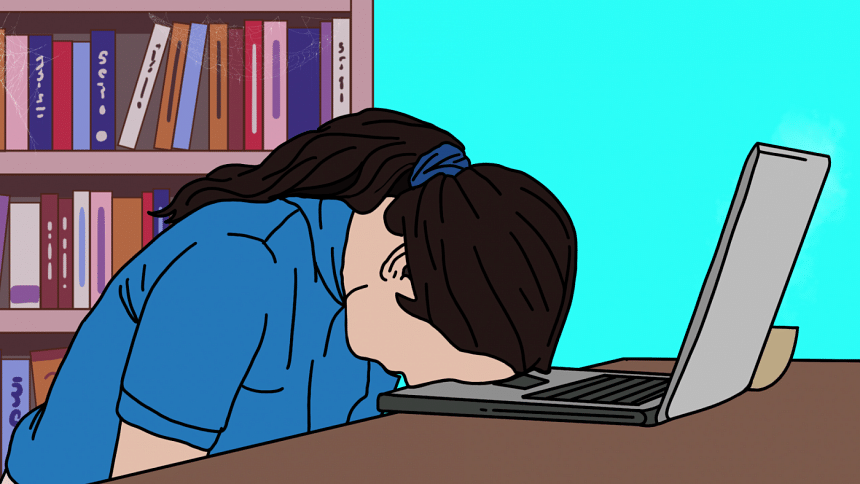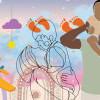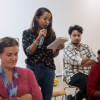How academic writing took a toll on my creative writing skills

I have always thought of myself as a creative writer, and it gave me the voice of freedom like nothing else could. It was a space where my imagination ran wild, and I could create entire worlds through my writing. Since I loved writing so much, I had no trouble putting equal effort into my academic essays, not realising that I would become a jargon kiln with all my creative juices drained.
The academic writing process is challenging and exhausting. It requires specific formats, guidelines, and a formal tone that often leaves little room for personal expression. Even though my grades went up as I habituated myself to writing structured, objective essays, my imagination gradually waned.
I remember the exact moment it dawned on me. I sat down to work on the first draft of my novel, looking forward to etching my mind's tales into articulation. An hour later, I stared at a blank page as my sore index finger hit the backspace button for the umpteenth time. For the first time in ten years, the unending well of inspiration felt drained, replaced by a sterile stream of academic jargon that made my poetry colourless and my prose mundane.
My ego was not having it because, quite ironically, I had written three term papers several pages in length that same week. It only highlighted how cruelly my academic pursuits had sapped my creative writing ability. This rude awakening prompted me to investigate further and seek solutions.
I decided that the writing rut could only be solved by approaching it from a scholarly angle – taking it by its root. I researched and scanned every relevant piece of literature to determine if my slump was an outlier or indicative of something bigger. Since writers love to write and do research about writing, I found several studies that looked at the side effects of academic writing.
One study found that the strict rules and conventions of academic writing can hinder creativity and originality because of the need to prove claims with facts and remain objective. Another study followed up with a similar claim and discovered that academic writers lost their enthusiasm for creative writing because producing analyses from pre-existing schema had killed their creativity.
I took the results with a grain of salt. The once lively voice of creation dancing across the pages of my stories has now been thwarted by Scrooge. It would take deliberate effort to regain spontaneity and independence, so I made some lifestyle changes. I noticed results immediately after establishing a routine which included reading widely across genres for inspiration, joining online writing forums, scheduling my writing sessions, and so on.
I am realising the benefits of group brainstorming sessions with consistent and constructive feedback from my fellow writers. Writing flash fiction feels less intimidating now. I am also taking breaks to go outside and be by myself as I experiment with narrative techniques, implement new ideas, and take some calculated risks to enhance my plot. I learned the hard way that writing is a demanding mental activity, whether for pleasure or for a class, it should never be taken lightly.
References
1. Smith, A., & Johnson, B. (2019). The impact of academic writing on creativity: A systematic review.
2. Brown, C., Davis, E., & Thompson, L. (2021). Exploring the effects of academic writing on creative writing motivation and enjoyment.
Ask Joyeeta to stop watching teen dramas at Instagram.com/nahianjamaljoyeeta.

 For all latest news, follow The Daily Star's Google News channel.
For all latest news, follow The Daily Star's Google News channel. 








Comments